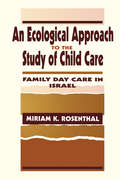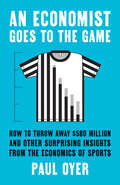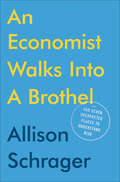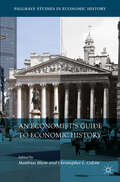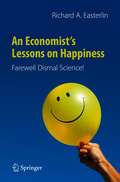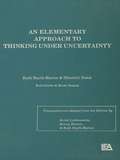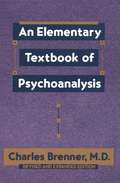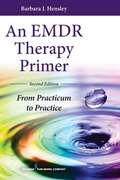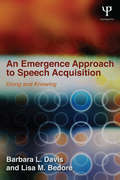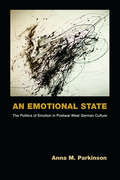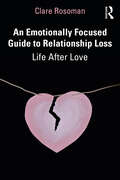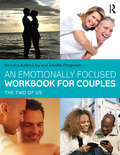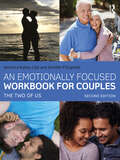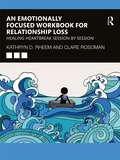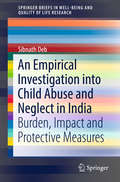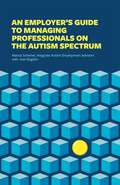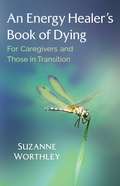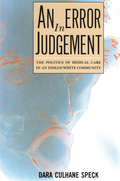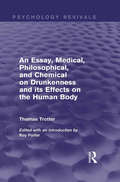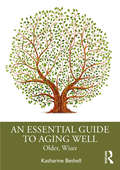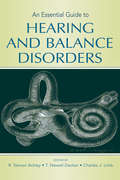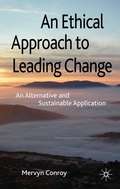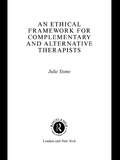- Table View
- List View
An Ecological Approach To the Study of Child Care: Family Day Care in Israel
by Miriam K. RosenthalA new type of childhood is experienced these days by many children in industrial societies that provide child care services. The studies summarized in this book stem from a conceptual model based on an ecological approach to the study of development. The family day care system in Israel is presented as a "case study" for the discussion of issues derived from this conceptual model -- issues which are of central concern to the investigation of child care in any society. This book establishes how historical and socio-economic processes: *influence the values and goals set by the society for its children, and its social policy concerning child care service; *are interpreted by parents and early childhood educators; *relate to different definitions of "quality care." Unique in its integrative analysis of the daily experiences of infants and toddlers in family day care, this volume examines cultural and social policy issues, family background and parental beliefs, caregiver's background and beliefs, the nature of the child care environment, and the child's personal characteristics. Its "theoretical" and "applied" orientation is important to researchers interested in the study of out-of-home-care for young children, as well as educators, developmental psychologists, sociologists, and social workers interested in the study of environmental influences on the child development. The ecological model and the applied implications of the study are of special relevance to practitioners in the field of early childhood.
An Economic Theory of Greed, Love, Groups, and Networks
by Paul Frijters Gigi FosterWhy are people loyal? How do groups form and how do they create incentives for their members to abide by group norms? Until now, economics has only been able to partially answer these questions. In this groundbreaking work, Paul Frijters presents a new unified theory of human behaviour. To do so, he incorporates comprehensive yet tractable definitions of love and power, and the dynamics of groups and networks, into the traditional mainstream economic view. The result is an enhanced view of human societies that nevertheless retains the pursuit of self-interest at its core. This book provides a digestible but comprehensive theory of our socioeconomic system, which condenses its immense complexity into simplified representations. The result both illuminates humanity's history and suggests ways forward for policies today, in areas as diverse as poverty reduction and tax compliance.
An Economist Goes to the Game: How to Throw Away $580 Million and Other Surprising Insights from the Economics of Sports
by Paul OyerAn engaging look at the ways economic thinking can help us understand how sports work both on and off the field Are ticket scalpers good for teams? Should parents push their kids to excel at sports? Why do Koreans dominate women’s golf, while Kenyans and Ethiopians dominate marathon racing? Why would Michael Jordan, the greatest player in basketball, pass to Steve Kerr for the game-winning shot? Paul Oyer shows the many ways economics permeates the world of sports. His topics range from the business of sport to how great athletes use economic thinking to outsmart their opponents to why the world's greatest sports powerhouse (at least per capita) is not America or China but the principality of Liechtenstein. Economics explains why some sports cannot stop the use of performance-enhancing drugs while others can, why hundred-million-dollar player contracts are guaranteed in baseball but not in football, how one man was able to set the world of sports betting on its ear—and why it will probably never happen again. This book is an entertaining guide to how a bit of economics can make you a better athlete and a more informed fan.
An Economist Walks into a Brothel: And Other Unexpected Places to Understand Risk
by Allison SchragerIs it worth swimming in shark-infested waters to surf a 50-foot, career-record wave?Is it riskier to make an action movie or a horror movie?Should sex workers forfeit 50 percent of their income for added security or take a chance and keep the extra money?Most people wouldn't expect an economist to have an answer to these questions--or to other questions of daily life, such as who to date or how early to leave for the airport. But those people haven't met Allison Schrager, an economist and award-winning journalist who has spent her career examining how people manage risk in their lives and careers. Whether we realize it or not, we all take risks large and small every day. Even the most cautious among us cannot opt out--the question is always which risks to take, not whether to take them at all. What most of us don't know is how to measure those risks and maximize the chances of getting what we want out of life.In An Economist Walks into a Brothel, Schrager equips readers with five principles for dealing with risk, principles used by some of the world's most interesting risk takers. For instance, she interviews a professional poker player about how to stay rational when the stakes are high, a paparazzo in Manhattan about how to spot different kinds of risk, horse breeders in Kentucky about how to diversify risk and minimize losses, and a war general who led troops in Iraq about how to prepare for what we don't see coming.When you start to look at risky decisions through Schrager's new framework, you can increase the upside to any situation and better mitigate the downsides.
An Economist’s Guide to Economic History (Palgrave Studies in Economic History)
by Matthias Blum Christopher L. ColvinWithout economic history, economics runs the risk of being too abstract or parochial, of failing to notice precedents, trends and cycles, of overlooking the long-run and thus misunderstanding ‘how we got here’. Recent financial and economic crises illustrate spectacularly how the economics profession has not learnt from its past.This important and unique book addresses this problem by demonstrating the power of historical thinking in economic research. Concise chapters guide economics lecturers and their students through the field of economic history, demonstrating the use of historical thinking in economic research, and advising them on how they can actively engage with economic history in their teaching and learning.Blum and Colvin bring together important voices in the field to show readers how they can use their existing economics training to explore different facets of economic history. Each chapter introduces a question or topic, historical context or research method and explores how they can be used in economics scholarship and pedagogy. In a century characterised to date by economic uncertainty, bubbles and crashes, An Economist’s Guide to Economic History is essential reading.For further information visit http://www.blumandcolvin.org
An Economist’s Lessons on Happiness: Farewell Dismal Science!
by Richard A. EasterlinOnce called the “dismal science,” economics now offers prescriptions for improving people’s happiness. In this book Richard Easterlin, the “father of happiness economics,” draws on a half-century of his own research and that conducted by fellow economists and psychologists to answer in plain language questions like: Can happiness be measured? Will more money make me happier? What about finding a partner? Getting married? Having a baby? More exercise? Does religion help? Who is happier—women or men, young or old, rich or poor? How does happiness change as we go through different stages of life? Public policy is also in the mix: Can the government increase people’s happiness? Should the government increase their happiness? Which countries are the happiest and why? Does a country need to be rich to be happy? Does economic growth improve the human lot? Some of the answers are surprising (no, more money won’t do the trick; neither will economic growth; babies are a mixed blessing!), but they are all based on reason and well-vetted evidence from the fields of economics and psychology. In closing, Easterlin traces the genesis of the ongoing “Happiness Revolution” and considers its implications for people’s lives down the road.
An Elementary Approach To Thinking Under Uncertainty
by Ruth Beyth-Marom Shlomith Dekel Ruth Gombo Moshe ShakedPublished in the year 1985, An Elementary Approach To Thinking Under Uncertainty is a valuable contribution to the field of Cognitive Psychology.
An Emdr Therapy Primer: From Practicum To Practice
by Barbara J. HensleyThis is a step-by-step overview of the foundations of EMDR Therapy presented in easily accessible, conversational language. It helps both new and experienced clinicians to maximize their preparation and skills in using EMDR safely, confidently, and effectively. The second edition is fully revised to reflect the evolution of EMDR to an integrative psychotherapeutic approach and is intended for use as a companion to Francine Shapiro's seminal EMDR texts. It has been enriched with several new case histories along with extensive examples of successful EMDR reprocessing sessions. An abundance of new information addresses EMD versus EMDR; research on the mechanism, model, and methodology of EMDR Therapy; bilateral stimulation; ancillary targets; the why and the how of many key EMDR Therapy components; protocol for single and recent traumatic events; updated information about the cognitive interweave, future templates; and much, much more. The book provides concise coverage of the AIP model and EMDR principles, protocols, and procedures and addresses the types of targets accessed during the EMDR process. The book summarizes the Eight Phases of EMDR Therapy and the Stepping Stones of Adaptive Resolution the components of the standard EMDR protocol. The building blocks of EMDR Therapy past, present, and future are assessed with regard to appropriate targeting and successful outcomes, as are abreactions, blocked processing, and cognitive interweaves. Detailed case studies demonstrate strategies to assist the client in reaching adaptive resolution of trauma.
An Emergence Approach to Speech Acquisition: Doing and Knowing
by Barbara L. Davis Lisa M. BedoreThe central assertion in this volume is that the young child uses general skills, scaffolded by adults, to acquire the complex knowledge of sound patterns and the goal-directed behaviors for communicating ideas through language and producing speech. A child’s acquisition of phonology is seen as a product of her physical and social interaction capacities supported by input from adult models about ambient language sound patterns. Acquisition of phonological knowledge and behavior is a product of this function-oriented complex system. No pre-existing mental knowledge base is necessary for acquiring phonology in this view. Importantly, the child’s diverse abilities are used for many other functions as well as phonological acquisition. Throughout, an evaluation is made of the research on patterns of typical development across languages in monolingual and bilingual children and children with speech impairments affecting various aspects of their developing complex system. Also considered is the status of available theoretical perspectives on phonological acquisition relative to an emergence proposal, and contributions that this perspective could make to more comprehensive modeling of the nature of phonological acquisition are proposed. The volume will be of interest to cognitive psychologists, linguistics, and speech pathologists.
An Emotional State: The Politics Of Emotion In Postwar West German Culture
by Anna M. ParkinsonThis literary-historical study seeks to dismantle the prevailing notion that Germany, in the period following the Second World War, exhibited an "inability to mourn," arguing that in fact the period experienced a surge of affect. Anna Parkinson examines the emotions explicitly manifested or addressed in a variety of German cultural artifacts, while also identifying previously unacknowledged (and under-theorized) affective structures implicitly at work during the country's national crisis. Much of the scholarship in the expanding field of affect theory distrusts Freudian psychoanalysis, which does not differentiate between emotion and affect. One of the book's major contributions is that it offers an analytical distinction between emotion and affect, finding a compelling way to talk about affect and emotion that is informed by affect theory but that integrates psychoanalysis. The study draws on the psychoanalytic writings of Freud, Margarete and Alexander Mitscherlich, and André Green, while engaging with interdisciplinary theorists of affect including Barbara Rosenwein, Lauren Berlant, Ann Cvetkovich, and Eve Kosofsky Sedgwick, among many others.
An Emotionally Focused Guide to Relationship Loss: Life After Love
by Clare RosomanBy viewing romantic love as an attachment bond, Clare Rosoman incorporates emotionally focused therapy (EFT) and attachment theory to provide evidence-based tools in navigating close relationships and managing the pain of relationship loss. Beginning with a foreword from Veronica Kallos-Lilly, this book firstly explores how attachment themes show up in relationship dynamics, creating either security or insecurity, before looking at how relationships go wrong. Chapters then focus on creating a new narrative for this loss of connection, helping readers learn about their own attachment strategies and how to work through pain, anger, and grief. The last part focuses on helping readers learn how to forgive, let go, build security within themselves, and implement these strategies in future relationships. Addressing all forms of relationships, including family and friendship losses, LGBTQ+ couples, and references to cultural humility, this accessible and empathetic guide is written for both therapists and their clients to help them learn from their experiences and build the ability to be a resource for themselves. It is essential reading for EFT therapists as well as couple, marriage, and family therapists.
An Emotionally Focused Workbook for Couples: The Two of Us
by Veronica Kallos-Lilly Jennifer FitzgeraldThis workbook is intended for use with couples who want to enhance their emotional connection or overcome their relationship distress. It is recommended for use with couples pursuing Emotionally Focused Therapy (EFT). It closely follows the course of treatment and is designed so that clinicians can easily integrate guided reading and reflections into the therapeutic process. The material is presented in a recurring format: Read, Reflect, and Discuss. Readings help couples look at their relationship through an attachment lens, walking them through the step-by-step process of creating a secure relationship bond. 33 Reflections invite readers to engage with the material personally, expanding their own awareness and ability to tune into their partner. Discussion sections suggest relationship-building exercises and a framework for conversations that promote safety, disclosure, and engagement. Case examples, along with informative illustrations, are scattered throughout the book to validate, illustrate, and inspire couples along their journey. Clinicians conversant with EFT can use this workbook to extend the effectiveness of their work with couples by giving them structured tasks to work on between sessions. For clinicians training in EFT, the book can guide them in staying focused on the EFT roadmap and illuminate how important change events unfold.
An Emotionally Focused Workbook for Couples: The Two of Us
by Veronica Kallos-Lilly Jennifer FitzgeraldThe second edition of this essential and newly updated workbook is intended for use with couples who want to enhance their emotional connection or overcome their relationship distress. It closely follows the course of EFT treatment and allows clinicians to easily integrate guided reading, reflection, and discussion into the therapeutic process. Incorporating new developments in EFT and decades of research in the field of attachment, Veronica Kallos-Lilly and Jennifer Fitzgerald include chapters that explore concepts such as attachment bonds, the three cycles of relationship distress, how to make sense of emotions, relationship hurts and more. The workbook follows the familiar and accessible format of the first edition, Read, Reflect, and Discuss, and weaves fresh, illustrative examples throughout, with updated content considering the impact of gender, culture, and sexual orientation on relationship dynamics. Added reflections on these topics and an expanded section on sexuality dispels constraining popular myths and frees partners up to express themselves more openly. This book is essential reading for partners looking for helpful steps to improve the quality of their romantic relationships as well as marriage and family therapists, couple therapists and clinicians training in EFT to use with their clients.
An Emotionally Focused Workbook for Relationship Loss: Healing Heartbreak Session By Session
by Clare Rosoman Kathryn D RheemComplete with exercises, reflections, and specially selected tasks, this workbook is written for those suffering from heartbreak (and their therapists) to support them in navigating and managing the pain of breakups. The authors help people in this position learn from their experiences, grow stronger from their suffering, and create healthy and fulfilling relationships. Kathryn D. Rheem and Clare Rosoman bring their experiences as relationship therapists and devotees of attachment science to offer informed support and encouragement to the broken hearted by providing practical strategies to help readers make sense of and grow from their experiences. Mirroring the therapy process, the book is structured so that readers actively participate in their own healing process with activities that guide their journey session by session. Chapters address attachment strategies, facing fear, riding waves of anger, processing grief and loss, forgiveness, and trusting yourself again. This book will help the reader create a future in which they can know and accept themselves as the perfectly imperfect human they are and create secure bonds with the special people in their life. This workbook is for people who have experienced the loss of a close relationship and are struggling to heal and move forward in their lives, as well as therapists assisting clients in their recovery from relationship loss.
An Empirical Investigation into Child Abuse and Neglect in India: Burden, Impact And Protective Measures (SpringerBriefs in Well-Being and Quality of Life Research)
by Sibnath DebThis book provides a comprehensive overview of child abuse and neglect globally in general terms and with empirical evidence from Puducherry, India. The study unearths the reality concerning child safety and raises a number of questions about child safety measures at the institutional and family levels. It recommends evidence-based and culture-specific preventive measures for child protection. The empirical evidence presented here provides important and useful information to school administrators on the issues of child abuse and neglect, for them to take evidence-based protective measures both at school and at home. For cross-cultural comparison, the findings are of interest to international scholars and academics. This work is useful for policy makers, educators, NGO personnel, child rights activists and opinion leaders in government departments dealing with children, and for researchers in the fields of psychology, social work, nursing, pediatric, forensic medicine, and public health.
An Employer’s Guide to Managing Professionals on the Autism Spectrum
by Integrate Joan Bogden Marcia Scheiner Meron PhiloEmployees with an Autism Spectrum Disorder (ASD) may be hugely beneficial to a workforce, but it can be difficult for individuals with no formal training to manage these employees successfully. This definitive guide will help managers and colleagues successfully interact with and support these professionals on the autism spectrum so as to ensure mutual success. Integrate Autism Employment Advisors use their experience advising employers on how to successfully employ professionals on the autism spectrum to identify the everyday challenges faced by employees with ASD in the workplace and sets out reasonable, practical solutions for their managers and colleagues. Barriers to productivity are highlighted, such as the sensory environment, miscommunication, and inadequate training of colleagues. Easy-to-implement strategies to adapt the working environment are provided, such as agreeing on non-verbal cues to signal ending a conversation or establishing parameters for appropriate email length. This book is an essential resource for anyone who works with professionals on the autism spectrum. It will allow them to engage with and support their colleagues on the autism spectrum in a respectful way and help them achieve a greater level of working success.
An End to Murder: A Criminologist's View of Violence Throughout History
by Colin Wilson Damon WilsonHuman beings have always been cruel, savage, and murderous. Is that all about to change? Human history can be seen as a catalog of coldhearted murders, mindless blood feuds, appalling massacres, and devastating wars. Creatively and intellectually, there is no other species that has ever come close to equaling humanity’s achievements, but neither is any other species as suicidally prone to internecine conflict. We are the only species on the planet whose ingrained habit of conflict and perpetual warfare constitutes the chief threat to our own survival. In An End to Murder, the Wilsons assess whether human beings are in reality as cruel and violent as is generally believed. The book explores the possibility that humankind is on the verge of a fundamental change: that we are about to become truly civilized. Covering a wide-reaching history of violence from the first hominids to the twenty-first century, the book touches on key moments of change while also indicating where things have not changed since the Stone Age. It follows the history of violence from fifteenth-century baron Gilles de Rais (“Bluebeard”), the first known and possibly most prolific serial killer in history; to Victorian domestic murder, the invention of psychiatry, Sherlock Holmes, and the invention of forensic science; the fifteenth-century Taiping Rebellion in China, in which more than twenty million died; World Wars I and II; more recent genocides and instances of “ethnic cleansing”; and contemporary terrorism. As well as offering an overview of violence throughout our history, the authors explore the latest psychological, forensic, and social attempts to understand and curb modern human violence.
An Energy Healer’s Book of Dying: For Caregivers and Those in Transition
by Suzanne WorthleyA compassionate guidebook to the energetic stages of dying and how to offer practical support at each stage of the transition back to spirit • Explains the nine energetic levels of dying and what is happening during each stage, including how belief systems and energy blocks can affect the death process • Reveals what the dying person may see and experience, what to watch for in each stage, and specific ways to support your loved one during each phase • Explores the grieving process and offers helpful strategies for moving through it Written by a highly skilled intuitive energy worker, this compassionate guide reveals what is happening energetically during the transition back to spirit and details how to provide support in any phase of losing a loved one: before death, during the dying process, and afterward. Taking readers step-by-step through the nine energetic levels of dying, author Suzanne Worthley explains what is happening at each level or dimension energetically, what to watch for in each stage, and specific ways in which we can support our loved ones through their transition back to spirit. For each of the nine stages, she describes what the dying person may see and experience, including the stages of transition at which people undergo the familiar elements of near-death experiences, such as entering a tunnel, conducting a life review, or encountering angels, guides, loved ones in spirit, or a bright light. She explores what family members and friends may see and experience, such as spirit energy, and what they can do to offer practical support and emotional solace to their loved one. Examining how life force energy works as well as what Akashic records and soul contracts are, Worthley shares hospice case studies for each level of transition, so caregivers can see how belief systems and energy blocks in specific chakras affect the death process and why it is important to clear energy blocks like fear, anger, or guilt during life if possible. She explores the grieving process and offers helpful strategies for moving through it as well as &“at-a-glance&” reference tables of the nine stages and related healing strategies designed to be referred to by those holding vigil. Shedding light on one of the great mysteries of existence, An Energy Healer&’s Book of Dying offers a compact yet comforting guide to support you through this emotional, grief-filled, and exhausting time and help you bring solace to your loved one during the transition back to spirit.
An Error in Judgement: The Politics of Medical Care in an Indian/White Community
by Dara Culhane SpeckON JANUARY 22, 1979, an eleven-year-old Native girl died of a ruptured appendix in an Alert Bay, B.C. hospital. The events that followed are chronicled here by Dara Culhane Speck, a member by marriage of the Nimpkish Indian Band in Alert Bay. She has relied mainly on interviews, anecdotes, and public records to describe how this small, isolated Native community took on the local hospital, the College of Physicians and Surgeons, provincial and federal ministries of health, and national media, because their private tragedy held implications that reached far beyond one child, one physician, one town, and even one century.
An Essay, Medical, Philosophical, and Chemical on Drunkenness and its Effects on the Human Body (Psychology Revivals)
by Thomas TrotterIt was during the course of the eighteenth and nineteenth centuries that the problem of chronic alcohol dependence in modern society and its consequent medical effects emerged. The topic of drunkenness figures prominently in the thinking and writing of social reformers, politicians, theorists, medical practitioners, and psychiatrists. Eventually, by the mid-nineteenth century, ‘alcoholism’ was named as the disease of habitual drunkenness. Possibly the most important book to predict this was Trotter’s Essay, written in 1804. Through case studies based on wide experience, he detailed the manifestations of alcoholism, ventured therapeutic recommendations, and squarely termed drunkenness a disease – indeed, a mental disease. Originally published in 1988 as part of the Tavistock Classics in the History of Psychiatry series, Roy Porter’s Introduction to this facsimile reprint locates Trotter’s work within the wider history of the evolution of the idea of alcoholism. It also examines the Essay in the context of Trotter’s own life and mind – a mind preoccupied with what he saw as the degenerative tendencies of modern civilization and with the wider issues of drug dependence.
An Essential Guide to Aging Well: Older, Wiser
by Katharine BethellThis book is a refreshingly honest self-help guide to aging well. It encourages readers to dispel gloom or overcome denial around the subject of aging and offers advice in a realistic, non-prescriptive format. Practical yet personable, chapters move through pertinent topics such as making the decision to retire and successfully navigating that transition; designing daily routines (your practice) and engaging in activities (your projects); connecting with others as relationships shift and evolve; and managing moods and emotional issues. The guide also supports readers coping with illness or injury, experiencing loss and grief, and those searching for meaning as they grow older. Written in a conversational style, An Essential Guide to Aging Well motivates its readers to be curious about this time of life, and to design the best possible version of it for themselves.
An Essential Guide to Hearing and Balance Disorders
by R. Steven Ackley T. Newell Decker Charles J. LimbAn Essential Guide to Hearing and Balance Disorders consolidates the most significant clinical aspects of hearing and balance disorders, ranging from cause and diagnosis to treatment and cure. Experts in various subspecialties of this extensive topic introduce readers to the most sophisticated and state of the art methods of diagnosis and treatment. Each chapter expands on a specific topic area along the continuum of how medical personnel diagnose hearing and balance disorders, to how surgical implantation of the cochlea and rehabilitation can remedy various conditions. In concise format, the book begins with a case history and follows with comprehensive descriptions of current knowledge regarding fundamental causes of hearing loss and balance disorders, as well as a thorough examination of objective assessment. The latter half of the volume presents specialized treatment and rehabilitative options for various disorders. The chapters in this part cover special topics and conclude with pertinent case studies. Unique areas of discussion in a text of this kind include: genetics of deafness pediatric hearing loss and hearing loss later in life business essentials in audiology private practice professional issues, such as ethics, methods of practice, and conflicts of interest. As its title implies, this book is critically important for all students and professionals in hearing/balance related disciplines, including audiology, otolaryngology, general medicine, and rehabilitation oriented allied health care occupations.
An Ethical Approach to Leading Change
by Mervyn ConroyMacIntyre's narrative based virtue ethics have for the first time in this book been applied to an organization undergoing change driven by market forces and a society that wants more for less with scant regard for the means by which that is achieved. The practical potential of these insights is explored in the case study that runs through the book.
An Ethical Framework for Complementary and Alternative Therapists
by Julie StoneAs growing numbers of patients turn to complementary and alternative medicine (CAM), the focus of attention has largely been on whether these therapies work and whether they are safe. These questions are central to further integration of CAM with orthodox medicine. But in the absence of formal regulation, it is equally critical to consider the ethical dimensions of the CAM therapeutic encounter.In this book, Julie Stone demonstrates that ethical issues are no less relevant to CAM therapists than they are to doctors or any other group of health professionals. She provides CAM therapists with a detailed framework of the specific ethical issues which affect CAM practice to help practitioners think constructively about how ethics underpin their therapeutic work.An Ethical Framework for Complementary and Alternative Therapists encourages critical and reflective practice, suggests practical problems to common problems, includes illustrative scenarios of ethical dilemmas faced by therapists and summarises key points. This timely book offers a comprehensive guide to this important area. Its challenging conclusions are as relevant to experienced practitioners as to students and newly qualified therapists. This book will also interest policy makers and professional bodies interested in strengthening and enhancing CAM's potential.
